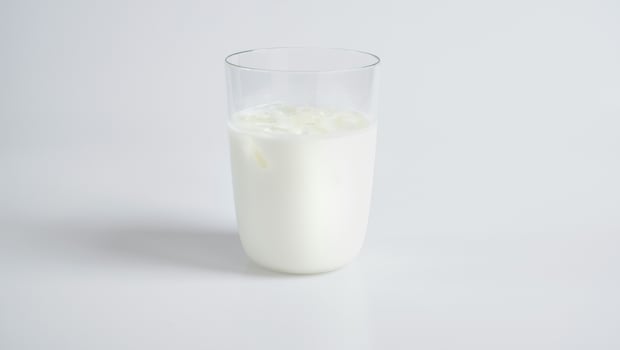Milk and curd are two staples that have long been part of Indian diets, from your morning chai to your afternoon thali. Both are packed with protein, calcium, and good fats, and are often seen as wholesome foods that support overall health. Yet, when it comes to weight loss and gut health, they behave quite differently. While milk is a source of nourishment that helps build muscle and keep you full, curd works more like a natural probiotic, soothing your gut and aiding digestion. So which one should you reach for if you are trying to lose weight or fix your gut? Let's understand how these dairy favourites stack up against each other.
Also Read: What Happens To Your Body When You Eat Oats Every Day For A Month
Nutritional Comparison: Milk vs Curd

Though milk and curd come from the same source, the fermentation process changes curd's composition entirely. Here's how they differ nutritionally:
Milk: As per the official website of the USDA, Whole milk is rich in protein (about 3.2g/100ml). It is also packed with calcium, vitamin D, and healthy fats that support bone and muscle health.
Curd: As per sports nutritionist Aman, 100 grams of curd gives you 3.5 grams of protein. It is slightly lower in lactose, easier to digest, and packed with live cultures that improve gut flora and immunity.
Milk For Weight Loss And Gut Health | Can Milk Help In Weight Loss

Photo: Unsplash
Milk can be a surprisingly effective ally for weight management if consumed correctly. Its high-quality protein keeps you full longer and prevents unnecessary snacking. As per a 2013 research, calcium in milk helps support fat metabolism in diabetics, helping your body use stored fat more efficiently. However, moderation and timing matter.
Here's how milk helps:
Keeps you satiated: Since it is packed with protein, milk slows digestion and reduces cravings.
Supports lean muscle mass: According to a 2008 review, milk has been shown to support lean muscle growth. It is a great post-workout option that helps with recovery.
Boosts metabolism: Calcium and vitamin D aid in breaking down fat cells.
- Improves digestion (for some): When taken warm and in moderation, milk can help regular bowel movements.
Make sure to choose low-fat milk if weight loss is your goal, and avoid sugary milkshakes or flavoured milk as they are packed with calories.
Curd For Weight Loss And Gut Health | Is Eating Curd Good For Weight Loss

Curd, on the other hand, is your gut's best friend. According to a 2014 study, its probiotics restore healthy bacteria in the intestine, improving digestion and nutrient absorption, which are crucial factors in maintaining a healthy weight. Unlike milk, curd is easier to digest.
Here's why curd shines:
Enhances digestion: Since it has active cultures, eating curd reduces bloating, acidity, and constipation.
Aids fat loss: According to a 2010 study, probiotics improve metabolism and help reduce belly fat.
Supports immunity: A healthy gut directly impacts overall resilience.
Prevents overeating: Its light texture keeps you full without heaviness.
Include curd with lunch or as a mid-morning snack to support both digestion and fat metabolism.
The Verdict: Milk vs Curd: Which Is Better For Weight Loss And Gut Health

If your focus is gut health, curd wins hands down because of its probiotic power. For weight loss, both have benefits — milk helps preserve lean muscle, while curd supports better digestion and reduces bloating. The ideal approach? Include both in balance: milk in the morning or after a workout, and curd with your lunch. That way, you get the best of both worlds.
Best Time To Consume Milk And Curd
Milk: Ayurveda strongly recommends having milk in the evening or nighttime for its incredible digestive properties. However, it is best to consult a professional if you have a sensitive gut.
- Curd: Best during daytime, especially with lunch, to cool the body and improve digestion. Avoid curd at night if you are prone to colds or sinus issues.
How Much Milk And Curd Should You Have Daily

Moderation is key when it comes to consuming milk and curd:
Milk: As per nutritionist consultant Rupali Datta, it is recommended to have 500-600 ml of milk per day for an average adult to get its benefits.
- Curd: According to multiple reports, one can have one to two bowls of dahi in a day. However, the capacity can differ from person to person. Overdoing dairy can cause bloating, especially if you are lactose sensitive.
Best Ways To Include Milk And Curd In Your Diet
Milk:
- Use in oats, smoothies, or protein drinks.
- Add to coffee or tea without sugar.
- Drink warm milk with turmeric for a post-meal boost.
Curd:
- Make raita, smoothies, or add to salads.
- Whisk into lassi or buttermilk.
- Use as a dip base or add to parathas for a probiotic-rich meal.
Who Should Avoid Milk Or Curd

- Milk: People with lactose intolerance, acne-prone skin, or respiratory issues may need to limit intake.
Curd: Avoid if you have sinus, cold, or throat infections, especially at night.
Also Read: Dark Chocolate vs Milk Chocolate: Which Is Healthier (And How Much You Can Eat Daily)
So, decide between curd and milk as per your dietary and health needs! However, make sure to always consult a professional if you have digestive issues.
Disclaimer: This content including advice provides generic information only. It is in no way a substitute for qualified medical opinion. Always consult a specialist or your doctor for more information. NDTV does not claim responsibility for this information.
About Nikita NikhilMeet Nikita, a passionate soul with an insatiable love for two things in life: Bollywood and food! When she's not indulging in binge-watching sessions, Nikita can be found behind the lens capturing moments or expressing her creativity through painting.











